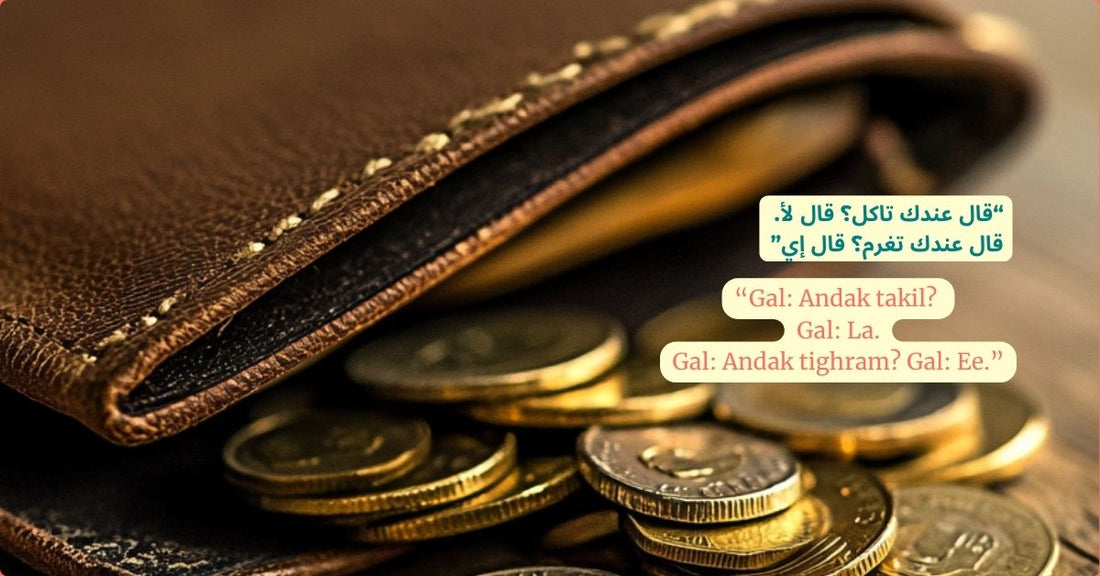
What This Kuwaiti Proverb Teaches Us About Priorities?
Share
Idioms or Proverbs have a way of sneaking wisdom into everyday conversation. In Kuwait, food is often weaved into the fabric of our most common proverbs, turning the ordinary into something insightful and relatable. One proverb that stands out for its wit and meaning is:
"Do you have money to eat? No. Do you have money to waste? Yes."
How to Say it in Arabic:
Gal: Andak takil?
Gal: La.
Gal: Andak tighram? Gal: Ee.
“قال عندك تاكل؟ قال لأ. قال عندك تغرم؟ قال إي”
At first, it might make you laugh, but dig a little deeper, and you’ll find it’s more than a lighthearted quip. It’s a sharp commentary on priorities, spending habits, and what we truly value.

The Meaning Behind the Words
On the surface, this idiom might feel like it’s just calling someone out. But at its heart, it’s a gentle nudge—a reminder to stop and think about what really matters. It’s all about priorities. Food, as you know, is life (I mean, literally and emotionally). Skipping essentials like nourishment while splurging on luxuries is what this proverb playfully critiques.
It’s not just about money or eating—it’s a call to realign what we value. Are we investing in things that feed our body and soul, or are we chasing fleeting pleasures that won’t really last? Pretty deep for a saying about food, right?
Why This Proverb Still Speaks to Us
Even in today’s fast-paced, consumer-driven world, this proverb feels so relevant. Let’s be honest—we all love a shiny new bag or that extra fancy coffee (I’m guilty too). But this saying reminds us to pause. Are we prioritizing what sustains us or what’s just for show?
For me, this proverb hits home whenever I’m tempted to skip making a good meal because I’m “too busy,” yet somehow have time to scroll endlessly on shopping apps.
The Cultural Lens
Kuwait has always been a society that places so much importance on food—not just as fuel, but as a way to connect. Meals here symbolize generosity, togetherness, and care. So, to neglect something as essential as food in favor of luxuries? That’s a big cultural no-no.
In a culture where sharing a meal is an act of love, this saying carries a lot of weight. It’s not just about food—it’s about the balance between taking care of yourself and embracing what truly matters.

How Can We Apply This Wisdom?
If this saying got you thinking about your own choices, here are a few takeaways:
Let’s Keep the Conversation Going
I love how this proverb reminds us to find balance—something I’m constantly working on. What about you? How do you keep your priorities in check? Let me know in the comments blow!
